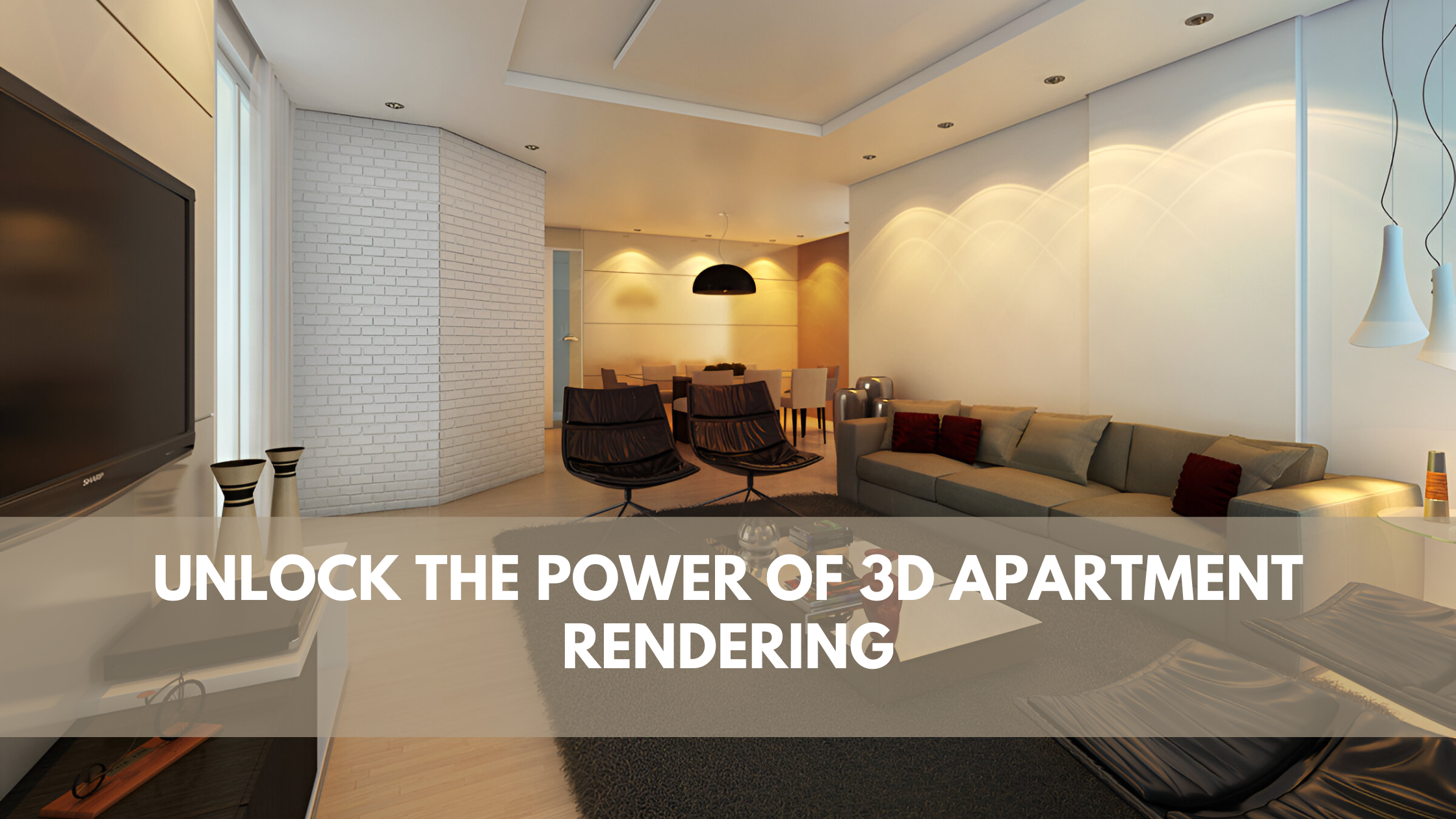Unlock the Power of 3D Apartment Rendering
First impressions can make or break a deal in today’s fiercely competitive real estate market. Buyers and renters are no longer satisfied with simple floor plans and static images; they want an immersive, realistic experience before making decisions. This is where 3D apartment rendering shines. A cutting-edge solution, 3D rendering breathes life into apartment designs by providing stunningly accurate visuals that allow potential buyers and tenants to see the property in vivid detail. This technology has become an indispensable tool for property developers, interior designers, and real estate professionals.
This article dives into the transformative power of 3D apartment rendering, exploring how it reshapes property visualization and offers unparalleled benefits in modern real estate marketing.
What is 3D Apartment Rendering?
3D apartment rendering means creating lifelike digital images or animations of apartment interiors. These digital renderings are crafted using advanced software that simulates real-world conditions such as light, shadows, textures, and materials, producing photorealistic representations of apartments. Whether for pre-construction marketing or remodeling projects, 3D renderings provide potential clients with an immersive preview of the space before it’s completed.
Like ArchVizX, 3D apartment rendering allows designers to present highly accurate interior spaces that foster understanding and connection with the design. This technology has revolutionized how stakeholders across industries communicate their visions.
Key Benefits of 3D Apartment Rendering
1. Realistic and Engaging Visuals
One of the most compelling advantages of 3D apartment rendering is its ability to produce photorealistic visuals. These high-quality renderings accurately represent everything from furniture placement and natural lighting to material textures and finishes, giving potential clients a clear, detailed view of the apartment. Unlike traditional blueprints or flat 2D images, 3D renderings offer a tangible experience, allowing viewers to visualize the layout and atmosphere of the space with ease.
By leveraging living room 3D rendering techniques, developers can highlight the main living spaces and show how furniture, lighting, and decor choices will impact the final design. This emotional engagement helps buyers and renters make more informed decisions.
2. Flexibility and Customization
Another major benefit of 3D apartment rendering is its inherent flexibility. Developers and designers can experiment with various design elements, from different types of flooring and paint colors to alternative furniture arrangements. This ability to customize the renderings based on buyer preferences enhances client satisfaction, as they can "test" different looks before committing. For example, potential buyers can see how an apartment would appear with hardwood floors instead of tiles or a different kitchen layout.
This customization ensures that the final design aligns with client expectations, saving time and money on revisions. Moreover, 3D rendering allows for instant modifications, streamlining the entire design process.
3. Enhanced Marketing and Sales Tools
In real estate, visually appealing marketing assets are key to attracting attention and converting leads. 3D apartment rendering offers a competitive edge by producing images and animations that can be used across various marketing channels—websites, social media, email campaigns, and more. The immersive nature of these renderings allows for virtual tours, enabling international clients or remote buyers to Experience the apartment without being physically present.
This approach aligns with the architectural visualization trends, which emphasize the growing importance of digital experiences in property marketing. High-quality, photorealistic renderings can significantly boost engagement, resulting in faster sales or lease agreements.
4. Time and Cost Savings
Traditionally, building model units or creating physical showrooms for prospective buyers involved high costs and long timelines. However, with 3D apartment rendering, those expenses can be reduced. Virtual models eliminate the need for physical staging while still delivering the same visual impact, allowing developers to showcase multiple layouts and design choices without extra overhead.
Additionally, 3D rendering speeds up the design approval process. Since changes can be visualized in real-time within the software, it eliminates the need for repeated modifications and costly delays. This makes it an efficient, cost-effective approach for both developers and designers.
The Future of 3D Apartment Rendering
As technology continues to evolve, so too does the potential of 3D apartment rendering. Virtual reality (VR) and augmented reality (AR) are rising, offering immersive experiences beyond traditional renderings. Clients can now "walk through" an apartment virtually, interacting with its features and understanding its look and feel. This development mirrors the VR trend in architectural visualization, further enriching the client experience and adding a new dimension to property marketing.
Moreover, sustainability is becoming an increasingly important factor in real estate. 3D rendering allows developers to showcase eco-friendly designs and materials visually engagingly, meeting the growing demand for environmentally conscious properties. By seamlessly integrating sustainable elements into luxurious designs, developers can appeal to a wider range of buyers without compromising on aesthetics.
Selecting the Right 3D Rendering Service
To fully harness the power of 3D apartment rendering, choosing a rendering service that understands the intricacies of apartment design is essential. Look for companies with a strong portfolio of high-end projects, ensuring they can handle complex layouts, luxury finishes, and intricate details. Clear communication between you and the rendering team ensures that the final product aligns with your vision.
Understanding the cost of 3D rendering is equally important. Pricing can vary based on the project's complexity, the level of detail required, and whether you need still images or animated tours. Knowing these factors will help you manage your budget effectively while achieving the best possible results.
FAQs
-
The cost of 3D apartment rendering can range from $300 to $5,000 depending on factors like the size of the apartment, level of detail, and whether it involves still images or animated walkthroughs. More intricate projects and high-end finishes will increase the price.
-
Many interior designers use 3D apartment rendering to visualize design concepts and present layouts to clients. This allows for better planning, adjustments, and a more accurate representation of the finished apartment's appearance.
-
3D apartment rendering can be costly due to the advanced software, time-intensive labor, and expertise needed to create photorealistic visuals. Factors like intricate details, customized designs, and high-resolution rendering add to the expense.
Final Thoughts
3D apartment rendering has revolutionized real estate marketing, providing developers and interior designers with a powerful tool to showcase properties in stunning detail. Whether you’re looking to sell or lease apartments, these lifelike renderings make engaging potential buyers easier, reducing project costs and closing deals faster. With advancements in VR and AR on the horizon, the potential of 3D rendering will only continue to grow, shaping the future of property visualization.
As you navigate the competitive real estate market, leveraging 3D apartment rendering will give your projects the visual edge to stand out and succeed. Whether marketing high-end apartments or conceptualizing new designs, 3D rendering offers possibilities for creativity, flexibility, and efficiency.

